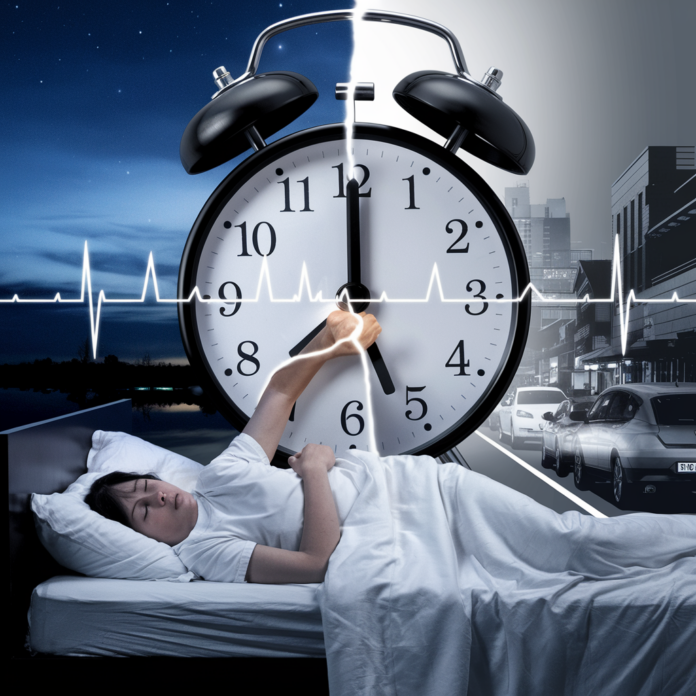As Americans prepare to “spring forward” for daylight saving time (DST) on March 9, health experts are sounding the alarm about the negative effects the time shift can have on human health.
The Science Behind the Risk
Research has long suggested that adjusting the clock by even just one hour can disrupt the body’s natural circadian rhythm, the internal clock that regulates sleep, metabolism, and overall well-being. The shift to DST in the spring means losing an hour of sleep, which can have significant consequences for heart health, cognitive function, and even workplace safety.
Dr. Matthew Walker, a leading sleep scientist and author of Why We Sleep, explains that the loss of sleep associated with DST can lead to an increase in heart attacks, strokes, and even car accidents. “The evidence is clear: The risk of a heart attack jumps by 24% the day after the clocks move forward,” Dr. Walker stated. “It takes days, sometimes weeks, for many people to fully adjust, and some never completely do.”
Increased Risk of Heart Problems
A 2019 study published in the Journal of the American College of Cardiology found that the Monday following the start of DST saw a noticeable spike in heart attack cases. The disruption in sleep patterns can lead to higher blood pressure, increased stress levels, and inflammation—all key contributors to cardiovascular issues.
Cognitive Impacts and Mental Health
Beyond heart health, sleep experts also warn that DST can negatively impact brain function. Sleep deprivation has been linked to memory problems, decreased cognitive performance, and a higher risk of mood disorders like depression and anxiety. Studies have also found that workplace injuries and motor vehicle accidents increase in the days following the time change, as fatigued individuals struggle to stay alert.
Calls for Change
Given the mounting evidence, medical professionals and lawmakers alike have called for the elimination of the time change. Some argue that sticking to standard time year-round would be the healthiest option, as it better aligns with the body’s natural biological clock.
Several states, including Florida and Texas, have introduced legislation to make DST permanent, but such changes require federal approval. The Sunshine Protection Act, a bill aimed at making daylight saving time permanent, passed the Senate in 2022 but has since stalled in the House of Representatives.
What You Can Do
While the debate continues, health experts recommend taking precautions to mitigate the effects of DST:
- Gradually Adjust Your Schedule: Start going to bed 15-30 minutes earlier in the days leading up to the time change.
- Prioritize Sleep Hygiene: Limit screen time before bed, reduce caffeine intake in the afternoon, and create a relaxing bedtime routine.
- Get Morning Sunlight: Exposure to natural light in the morning can help reset your internal clock and ease the transition.
- Stay Hydrated and Active: Regular exercise and hydration can improve sleep quality and reduce the effects of fatigue.
As the nation debates the future of daylight saving time, one thing remains clear: the medical risks associated with the biannual time shift are real, and for many, the cost of losing an hour of sleep may be too high.



